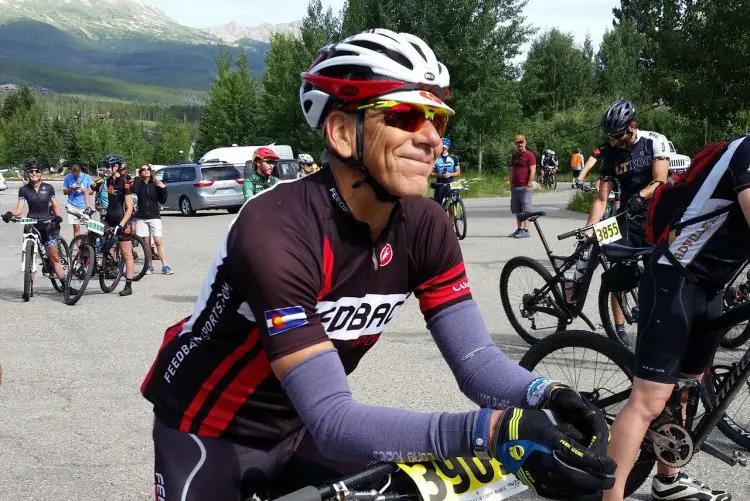Winning in cyclocross doesn’t have to mean crossing the line in first. In his last column, Lee Waldman examined why being a naturally-gifted athlete isn’t an ideal condition. Today, he dives a little deeper into the subject, examining what exactly defines an athlete, and what defines his or her approach to “winning.”
by Lee Waldman
By the time you read this column you will probably have toed the line in at least one, and maybe more early season cyclocross races. You’ve certainly been reminded of what a brutally hard sport it is even within the broader universe of bike racing which in and of itself is physically and mentally demanding sport. And, no matter what your results there might have been times when you’ve entertained doubting thoughts as to whether you are enough of an “athlete” (in quotes for a reason here), to warrant continuing to train and race.
For some of us, those thoughts rear their ugly head just before falling asleep when we’re reviewing the day’s training, or racing. You might find yourself exploring the question as you watch the field pulling away from you. Or, it might be something that you ponder just randomly. No matter what the circumstances, there is a modicum of self-doubt that, I believe, lurks in the recesses of each of our psyches.
What does it mean to be an athlete, more specifically a cyclocross athlete? Can you define yourself simply by your results? If you regularly stand on the podium or fight for those places are you more of an athlete? Is everyone else on the course with you just casually riding around? No, I don’t think that it has anything to do with results because there are so many more ways to lose than there are to win. Think of it. A missed dismount into a barrier, botching a remount, making a mistake in the sand, slipping in a slick corner, etc. Each of those can take you from hero to goat in an instant. Do those unfortunate turn of events, which obviously play into our ultimate race results, mean that we are less of an athlete when we fall victim.
Perhaps we have to define just what it means to lose first? If losing means not crossing the line in the top 3 or 4, then that’s a pretty limited way to look at it because, as we’ve just examined, there are more ways to lose than there are to win.
On the other hand, is winning all about finishing first? I remember being interviewed for a short news clip about cyclocross years ago when I first began promoting cyclocross races. I tried, in the interview, to make it clear that in cyclocross there are no losers. This sport is simply so hard that just standing at the start line and racing makes you a winner, and an athlete.
But it’s not just about racing now, is it? It is, I think, a mindset. That’s what I’ve tried to get my wife, to understand. Two summers ago she made the decision, purely on her own, to compete in her first triathlon. We talked a lot about her transition from someone who casually exercised to a committed athlete. She was diligent and dedicated in following the plan that her coach laid out for her. Rarely missed a workout. Never backed down from the expected effort. It showed in her attitude towards herself and in her results. She began, finally, to believe in herself and her ability. She called herself an athlete, not just giving lip service to the title, but acting like one. Did her results matter? To her, yes. But she was finally able to understand that she was an athlete because she had made a conscious decision to live an athlete’s lifestyle.
Being an athlete is a commitment. A commitment to live the lifestyle. Not a monk, mind you, but an athlete, attending to the care of body and soul. Training regularly, eating healthily, resting well. These are all the external factors. They present their own challenges in the context of our hectic and sometimes scattered lives, but they are also attainable. With commitment! It’s easy to say, “I am an athlete”, without the commitment to live the lifestyle. Walking that talk takes a bit more. I’m not saying that life needs to be monastic, but there needs to be a certain focus on making decisions that play in to the representation of yourself as an athlete. In other words, you need to do the things that an athlete does.
So if winning, or results in general don’t define us as cyclocross athletes, then what does? What sets us apart from the world of more casual cyclists? Can and should we set ourselves apart? Or, in reality, is everyone who steps out their door to ride, run, swim, etc., an athlete? I’m going to argue that maybe there are different levels of commitment that might define different types of athletes. Certainly, anyone who chooses to push themselves physically and mentally can, and should be able to “wear” the label of athlete. But there is a distinction between those of us who choose to compete with others and those who choose to compete with themselves.
As I write this I can feel myself sliding down a very slippery slope because when I step back to get a better view, it appears to me that anyone who makes any sort of a commitment to an athletic lifestyle is an athlete. Once you make the choice to train well and consistently, eat well (for the most part), rest, and to prioritize these elements, then aren’t you an athlete? So maybe the differentiating factor is, as I’ve already explored, the commitment regularly incorporating those elements as an integral part or your daily life.
Even within the cyclocross racing community the different levels exist. Some riders choose to follow a relatively loose structure where they train without a set program, eat what they want without regard to whether it’s “healthy” or not, and really don’t rest much or well. Then there are the type ‘A’ riders. Those whose life is regimented. They know when and how they are going to train each day. They pay close attention to food intake and they sleep, possibly even tracking everything is a detailed training diary. Should they be called athletes but not the riders who live a less structured life?
What about on race day. Do the “athletes” show up early, pre-ride the course multiple times seeking out the best line, or lines. Is there warm-up routine a strict one that they follow at every race. I know, for me, there is a routine that I HAVE to follow or I don’t feel ready to race. It involves not only course examination but how I put on embro, how I put on my socks and even the process of number pinning. Am I more of an athlete than the rider who is less structured? I’ll leave the answer to you.
I’m obviously struggling with this question. When I started writing this piece it was pretty clear to me that the defining characteristics of a cyclocross athlete were primarily the level of commitment. The more dedicated you are to the sport, the closer you come to that label. Now I’m not sure any more. After all, racing a cyclocross bike is such a difficult endeavor at any level, that I’m starting to believe that what defines us as athletes is the simple act of “doing”. It doesn’t matter where you finish, or if you finish at all. What does define you as an athlete is your commitment to the lifestyle and your steadfast belief in yourself.
With that in mind. . . please go ride your bike.





























